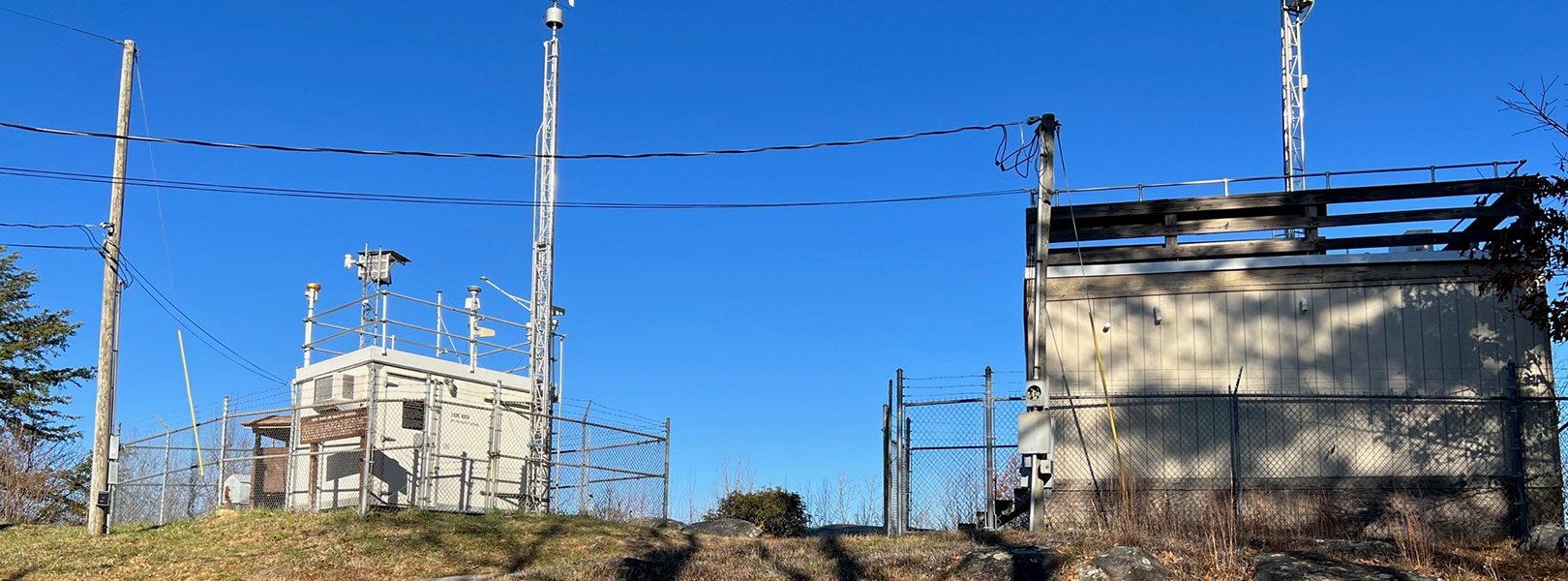ASCENT: The Future of Our Air
By Reagan Gulledge
Nicolas Buchenau, PhD Student
Source: Nicolas Buchenau
Amidst the summer of 2023, the wildfires in Canada created a thick haze of smoke that soon crawled its way across the vast distance of the United States, drastically affecting the air quality. The quality of our air has been a major concern for the last few decades with an increasing amount of research and development appearing to combat this issue. However, this past summer has enlightened us that our air is forever changing. Here at UNC-Chapel Hill, Nicolas Buchenau, a PhD student, is leading one of the sites for a project devoted to atmospheric and chemical science, to help better understand the air we breathe.
ASCENT, also known as the Atmospheric Science and Chemistry Measurement Network, is a project that has been newly implemented across the United States.¹ Nicolas Buchenau is a 4th year PhD student in the Department of Environmental Sciences and Engineering at the Gillings School of Global Public Health and is a member of the Surratt Group. The Surratt Group is a lab here at UNC that runs the North Carolina ASCENT location. As a member of this lab, Buchenau is the lead student for UNC-Chapel Hill’s branch of the ASCENT project stationed in the Look Rock campground in the Great Smoky Mountains of North Carolina.² This project was recently established across the United States in 2021, and there are 12 field sites spread across the country. The different field sites range from national parks like Look Rock, North Carolina, to booming urban areas like Atlanta, Georgia.¹
Look Rock Field Site in the Great Smoky Mountains National Park
Source: ASCENT website
The goal of this project is to look at the composition and characteristics of the fine particulate matter known as aerosols in the atmosphere. Aerosols are small particles in the air and can stay there for hours to days, depending on their varying sizes. These particles have a negative impact on both human health and the climate.² The diverse types of field sites allow for analysis of varying degrees of aerosol concentrations in the atmosphere.
As the project's leader, Buchenau has many roles involving him in the lab and the field site. When traveling to the field site, he is responsible for maintaining the four air analyzing instruments while running calibrations on it so the data can be sent back to the lab for further analysis. Back at the lab, they run analyses on the particulate matter in the air by examining the composition, structure, and size. Aerosols can be any type of particulate matter suspended in the air such as dust and smoke. They affect how we breathe as well as the amount of absorption and reflection of solar radiation that reaches the Earth’s surface, which in turn affects how the Earth regulates temperature. All this information is thus sent to federal agencies such as the EPA (Environmental Protection Agency) and NCAR (National Center for Atmospheric Research) for annual atmospheric data compilations.²
“I think it’s really important to have monitoring like this and it’ll hopefully play a really big role in trying to understand the state of our air in the U.S. and hopefully more of North America,” Buchenau explains.² He has been a part of the project from the very beginning and has seen our air quality fluctuate over the last few years. In the past, there have been discoveries of aerosol fluctuations during the seasonal changes between warmer and cooler weather, and during natural disasters. During the Canadian wildfires, the quality of air had declined rapidly and affected Americans all over the country due to the intense amounts of aerosols in the air. Although it was a time for concern, the ASCENT project gained valuable information on air visibility and the change of snake patterns while dispersing across the country.
Wildfires in a Forest Emitting Aerosols and Affecting Visibility
Source: ASCENT website
UNC-Chapel Hill has been a part of the ASCENT project from the very start and is now transitioning this project’s lead over to the NCAR. The goal is for this project to expand in coming years in hopes of bettering our air quality. “I think there is a lot of interest in keeping this running for as long as possible,” says Buchenau.² He explains how our air quality is better than what it used to be and is eager to learn what the future will hold.
References:
ASCENT,https://ascent.research.gatech.edu/
Interview with Nicolas Buchenau, Ph.D. Student, 02/09/2024



